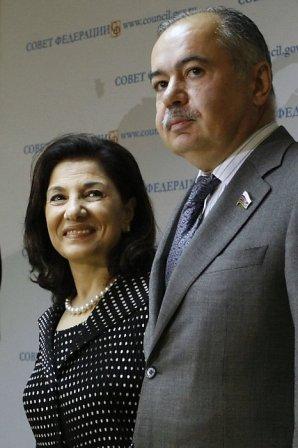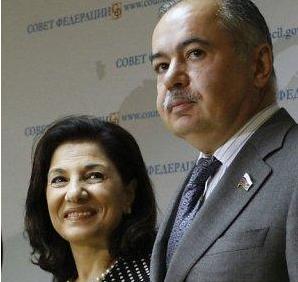Assad’s political and media adviser Bouthaina Shaaban said western sanctions against Syria are stoking violence in the country

|
During a visit to Russia, Syrian President Bashar al-Assad’s political and media adviser Bouthaina Shaaban said western sanctions against Syria are stoking violence in the Middle Eastern country adding that the Libyan scenario will not be repeated in the country. |
“The West should choose the path of peace,” Shaaban told reporters in Moscow. “We are making changes aimed at peace, security and stability. By not supporting this and imposing sanctions, directly or indirectly they are supporting violence.”
Shaaban, one of three Syrian officials who had sanctions imposed on them by the U.S. Treasury Department last month, condemned “foreign interference” in Syria and said the government is committed to peaceful political reform.
Shaaban hailed the Russian balanced position saying “history will show that Russia was right.”
The Syrian presidential adviser said Syrian leadership believes that "it is impossible. The people drew the lesson." "Before NATO invaded Libya about 20 people were killed. And now a total of 50,000 people have been killed and 10,000 injured, and 100,000 people remained homeless," she said.
Shaaban also denied reports saying that at least 10,000 people have died in the turmoil facing the country. "According to our data, a total of 700 people were killed from every side," he said.
TOUGH BUT BALANCED
Russia and China, veto-wielding members of the United Nations Security Council, have resisted efforts by Washington and its European allies to step up the international response to Syria's crackdown on protests.
Russian President Dmitry Medvedev said he is seeking a “balanced” United Nations resolution on Syria without sanctions.
“It should be tough but should not imply automatic sanctions,” Medvedev said during a joint briefing with U.K. Prime Minister David Cameron in Moscow. “There is no need for extra pressure.”
Medvedev also said it was important that any resolution adopted by the UN Security Council should “not turn into a sort of resolution 1973.”
